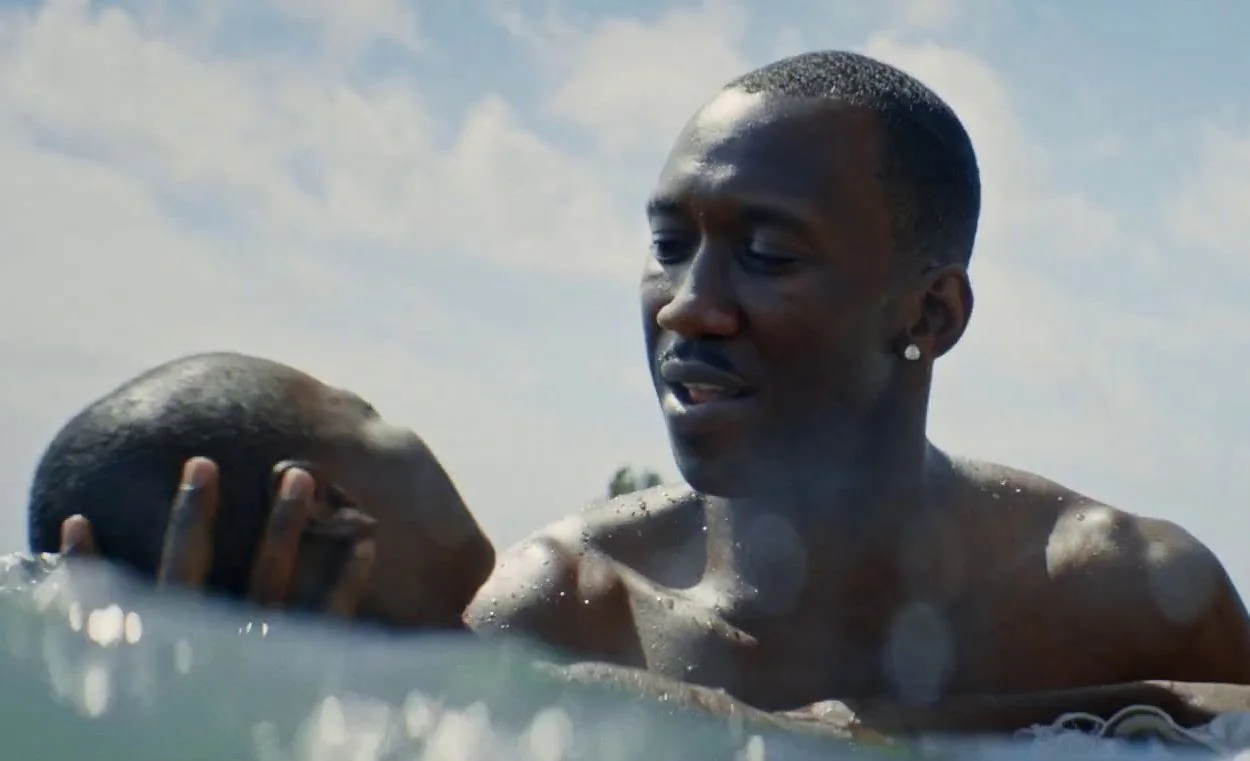Review: Moonlight
The African-American cinematic landscape is littered with tales of urban youth, existential angst and longing to belong. So the fact that Moonlight traffics in those areas as well gives it precedent. What makes it unprecedented is the light touch that is applied to everything here. This beautiful character arc does justice to its fully-realized subject. It doesn't "humanize" Chiron, it treats him as human. That its themes are underrepresented in film is only part of its allure. While it grants many access to a life they'd never consider, it does so in a way that leaves certain doors unopened and certain questions unanswered--a feat that is not the norm when a film's subjects are Black.
The story opens with Juan (played by "Mahershala Ali"), a local drug boss, checking in on his foot soldier on the corner. He eventually comes upon a young boy dubbed "Little" (played by Alex Hibbert), who has been chased into one of his trap houses by bullies. Little faces bullies because he is gay. As he grapples with the beginnings of this reality and a drug-addicted mother, Juan, along with his live-in girlfriend, Teresa (played by Janelle Monae), become part-time stand-ins for his absentee parents.
Just as Little begins to wrestle with the complications in his story, we are ushered into his life as Chiron. He is older now; high school aged. And the complications are growing. The bullying is more intense and violent, his mother's addiction has reached a fever pitch and he is still unsure of his own sexuality. Through a mix of exploration and humiliation, this is where Chiron becomes "Black," the nickname given to him by his friend, Kevin. And by the time we get to Black's story, Chiron has evolved so dramatically as a character that it allows for a careful reexamination of every frame before it.
There is so much here. This is a masterclass in subtlety and Barry Jenkins' reserved nature as a filmmaker. This followup to his 2008 debut, Medicine for Melancholy, dabbles in many of the same topics--Black love, self-identity and complicated racial politics. What sets this apart, however, is all of the ways it comments on things that it, at least ostensibly, isn't about. Is the film about race relations in America? No, but Chiron's evolution is guided by the unseen hands of extremely complicated forces. They are never explained, but when you start to break down all the ways Little becomes Black, it is hard not to appreciate the nuance. The "War On Drugs," homophobia in the Black community, failed public housing projects. These all lie just beneath the surface of this captivating story, meaning there is always another level to Chiron's endlessly complex narrative.
With regards to the filmmaking, it is nothing short of Grade-A work. James Laxton's cinematography yields dozens of 'book-worthy' still frames. Lighting Black faces and Black bodies provides a unique challenge, which Laxton nails frame-by-frame. Jenkins' direction is also worth highlighting, as the story contains an uncommonly clear vision. While emotional, it never manipulates. Nothing is added for dramatic effect or shock value. What's there needs to be there and what doesn't isn't.
But chief among the elements that work so well is its tremendous ensemble cast. As Chiron is played by three young men (Alex Hibbert, Ashton Sanders and Trevante Rhodes), there is no lead. Naomie Harris as Chiron's mother, Paula, is the only actor in all three parts. Andre Holland and Mahershala Ali are only in one part each, but each add an invaluable layer to the film. This extraordinary collection of supporting performances makes Chiron's story feel like one that was actually lived; like these were actually people who shaped him. That effect holds together this beautiful story, which spans a decade, but feels like it contains a lifetime.
To say this film is a masterpiece would be an understatement. Masterpieces are the result of all involved being at their very best. With every crisp shot, immaculately delivered line and emotive thread in the breathtaking tapestry, that the people involved are at their very best quickly becomes a foregone conclusion. Barry Jenkins and Co. were fully-invested in making something special. The reason this rises even beyond a somewhat trite label like "masterpiece" is that it is more. Beyond what shows up on screen, there is the undeniable fact that much of this has never shown up on screen before. Love between Black men, a thoughtful exploration of Black masculinity, the intricacies of Black life explored in wholly subtle ways. All of this is not only there, but is so artfully crafted that it's hard to imagine a better film is coming this year.
______________
If you like our content, please SHARE using the buttons below and SIGN UP for our monthly newsletter to stay up to date on the latest!












